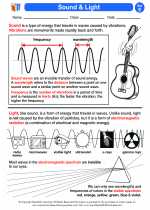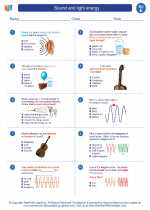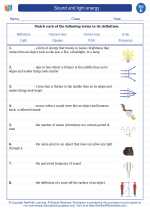Sound and light energy -> spinal cord
Spinal Cord
The spinal cord is a long, thin, tubular bundle of nervous tissue and support cells that extends from the base of the brain to the lower back. It is a vital part of the central nervous system and is responsible for transmitting messages between the brain and the rest of the body.
Structure of the Spinal Cord
The spinal cord is composed of nerve cells and bundles of nerve fibers. It is protected by the vertebrae of the spine and is surrounded by cerebrospinal fluid, which acts as a cushion and provides support.
Function of the Spinal Cord
The spinal cord plays a crucial role in relaying sensory information from the body to the brain and transmitting motor signals from the brain to the muscles. It also coordinates reflexes, which are automatic responses to stimuli that help protect the body from harm.
Study Guide
- What is the structure of the spinal cord?
- How is the spinal cord protected?
- What is the function of the spinal cord?
- What are reflexes and how are they related to the spinal cord?
- What would happen if the spinal cord is injured?
Understanding the spinal cord is essential for understanding the functioning of the nervous system and its role in controlling the body's movements and responses to the environment.
[Spinal Cord] Related Worksheets and Study Guides:
.◂Science Worksheets and Study Guides Fifth Grade. Sound and light energy

 Activity Lesson
Activity Lesson
 Worksheet/Answer key
Worksheet/Answer key
 Worksheet/Answer key
Worksheet/Answer key
 Worksheet/Answer key
Worksheet/Answer key
 Worksheet/Answer key
Worksheet/Answer key
 Vocabulary/Answer key
Vocabulary/Answer key
 Vocabulary/Answer key
Vocabulary/Answer key
